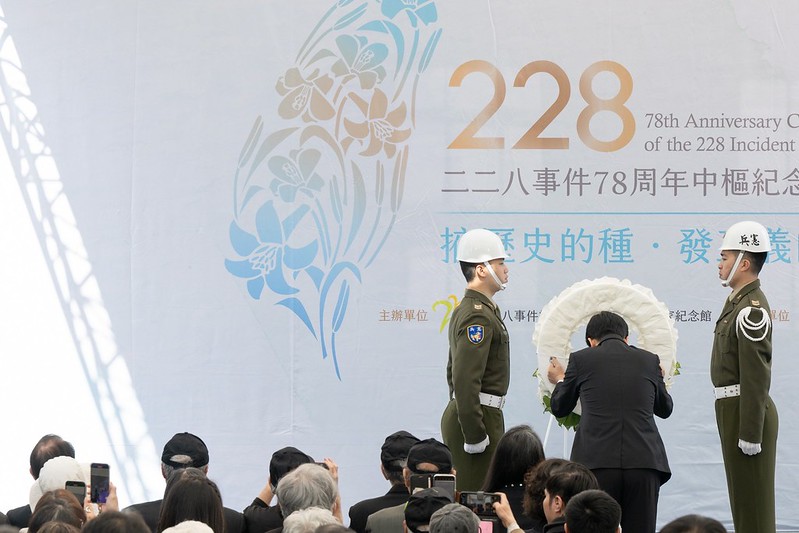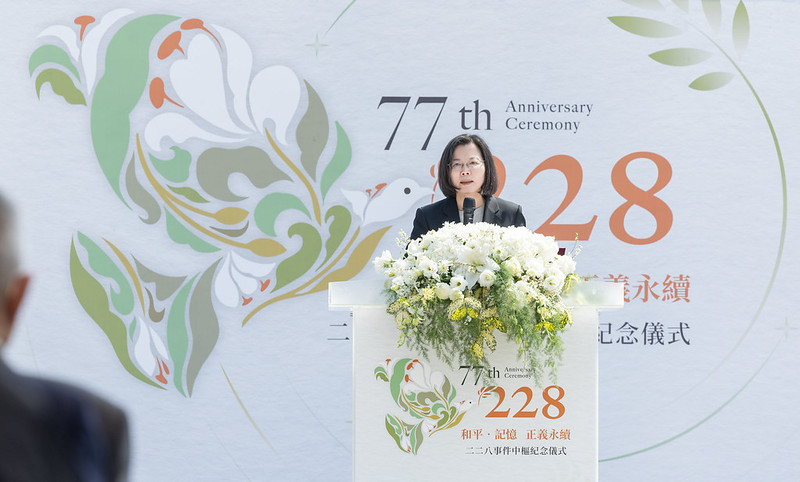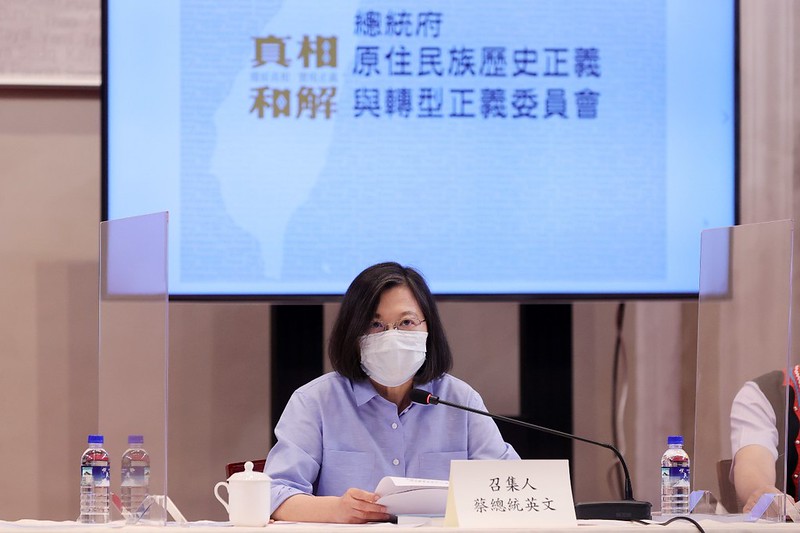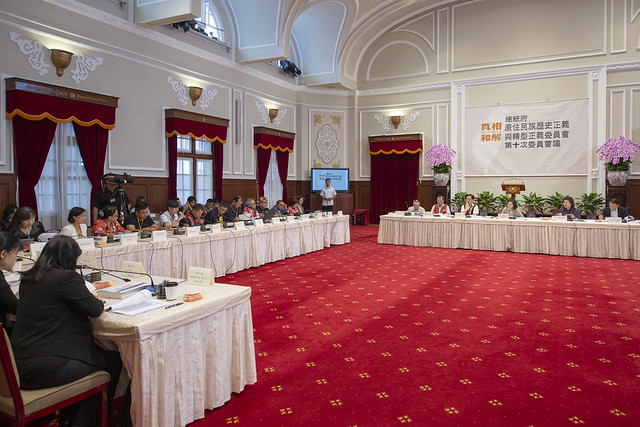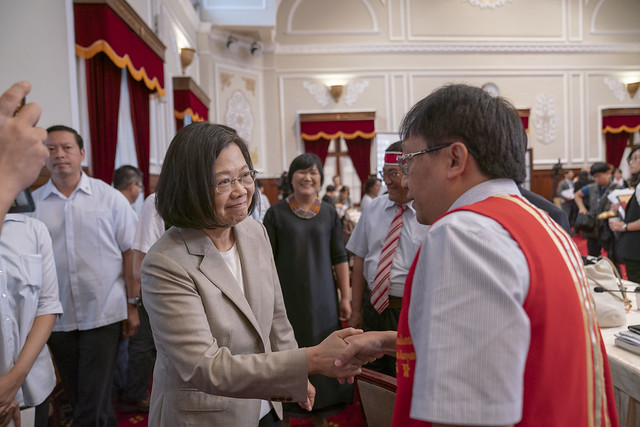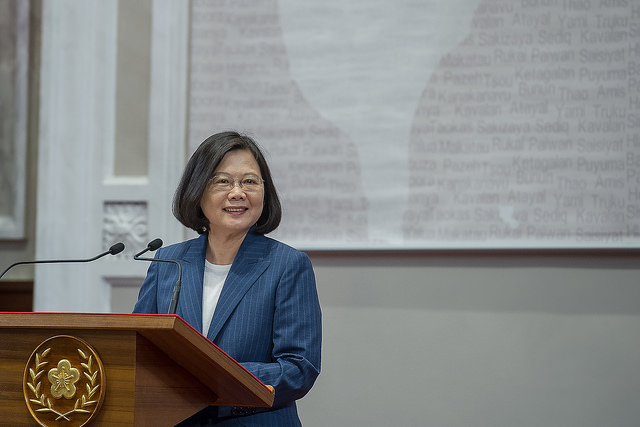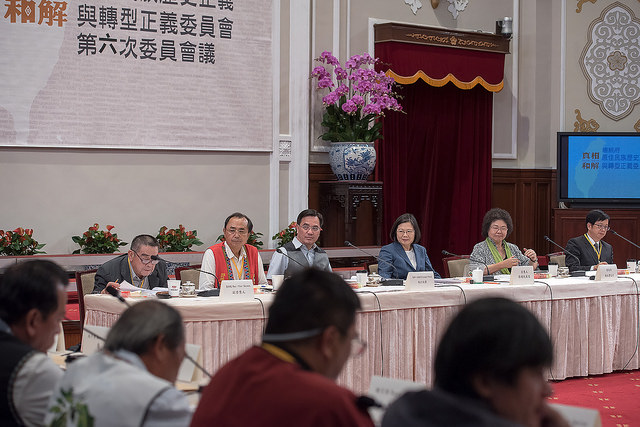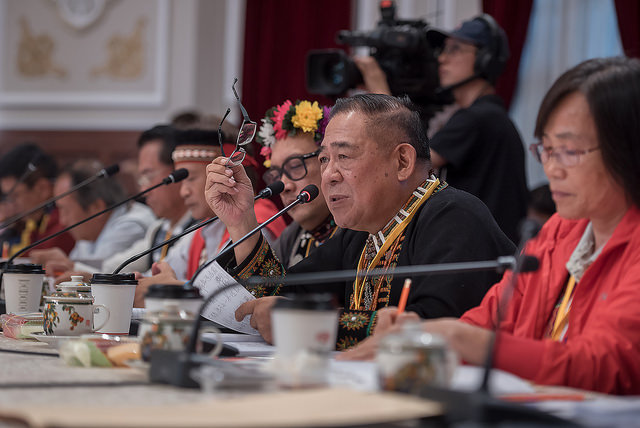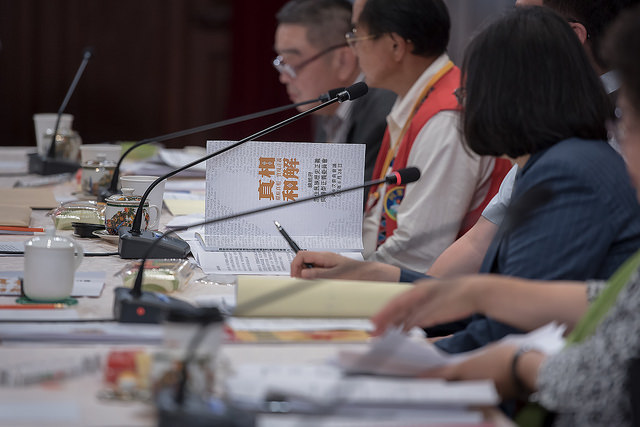News & activities
 News releases
News releases
On the afternoon of June 28, 2018 President Tsai Ing-wen presided over the sixth meeting of the Presidential Office Indigenous Historical Justice and Transitional Justice Committee (“the Committee”). She emphasized that transitional justice applies equally to all ethnic groups, and that no matter how complex or potentially divisive an issue may be, dialogue will bring collective wisdom into play and promote truth and reconciliation. The president also expressed hope that, in addition to continuing to clarify historical facts and exchange views on major issues, the second-term Committee will also inspire more positive dialogue and create more possibilities for greater mutual understanding.
The following is a translation of the president's remarks:
Today is the first meeting of the second-term Presidential Office Indigenous Historical Justice and Transitional Justice Committee. Let's welcome the three new committee members, including the Rukai people's representative—Director Saidai Latarovecae (伍麗華) of the Pingtung County Indigenous Peoples Department; our academic expert—Associate Research Fellow Su-chuan Chan (詹素娟) of Academia Sinica's Institute of Taiwan History; and our government agency representative—Director General Lin Hwa-Ching (林華慶) of the Forestry Bureau. I see many familiar faces—people who have accepted our invitation to continue participating in this dialogue platform. Over the last year and a half the Committee has shown the nation that through public discussions, we can face up to the harm inflicted on indigenous peoples over the course of Taiwan's history, and take steps to find solutions.
Through the Committee's discussions, we have begun to restore the truth about issues that indigenous peoples are concerned about, including traditional territory, disappearing languages and cultures, and restoring the indigenous status of the Pingpu ethnic group so that we can gradually implement systemic reforms.
Based on the recommendations proposed by the Committee, last month the Executive Yuan formally introduced a draft act governing indigenous historical justice and the restoration of indigenous rights. So things are changing.
At today's meeting, we've arranged for Committee staff to report on the first-term Committee's key results. Based on those results, we'll achieve even more of our goals over the next two years. Like previous meetings where we heard reports from the Forestry Bureau and Taiwan Sugar Corporation, today we’ve invited the Veterans Affairs Council to give us a status report on its participation in the Committee's work.
As I said before, there are three key pieces to the indigenous land issue puzzle that are indispensable to reconstructing the historical truth. I'm referring to the indigenous lands acquired by the Forestry Bureau, Taiwan Sugar Corporation, and the Veterans Affairs Council.
Due to historical circumstances, the Veterans Affairs Council was established to care for large numbers of veterans, whose contributions cannot be overlooked. But significant areas of land managed by the Veterans Affairs Council do, in fact, overlap with the traditional lands of indigenous peoples. I hope that through these reports and more communication, we can promote positive interaction between the Veterans Affairs Council and indigenous tribes to find systemic solutions.
No matter how complex or divisive an issue may be, through dialogue we can certainly bring collective wisdom into play and promote truth and reconciliation. That's what the Committee is for.
The Transitional Justice Commission (“the Commission”) began formal operations last month. I'm sure the Committee's thematic subcommittees have already uncovered the relevant issues from the authoritarian period, and opened cooperation with the Commission. Pastor Eleng Tjaljimaraw (高天惠) of the Paiwan tribe is here today. She is a member of both the Committee and the Commission, and will continue to act as a bridge, facilitating communication between the two.
I want to take this opportunity to say a few words to a few people, our friends who still misunderstand transitional justice and historical justice for indigenous peoples.
The purpose of transitional justice is to bring about ethnic reconciliation, not to stir up ethnic strife. Only by owning up to the wounds of the past can the government avoid repeating the same mistakes. And only when society's different ethnic groups can put aside their differences will Taiwan’s hard-earned democracy really be consolidated.
In a democratic Taiwan that has implemented transitional justice and overcome the wounds of history, no one will suddenly disappear because they criticize the government. And no one will be punished because they insist on speaking their native language.
Transitional justice applies to all ethnic groups, not just ethnic Han people, so it’s not just an issue for indigenous peoples. It's a task that everyone in Taiwan society has to address together.
Historical justice for indigenous peoples is a special task, as it involves time spans and issues that are broader and more complex than transitional justice for the authoritarian era alone. So it requires the participation of all citizens.
As we begin the second-term Committee process, I hope we'll continue to clarify historical truth and exchange views on important issues. I also hope we can inspire even more positive dialogue and create even more possibilities for mutual understanding.
Committee members and colleagues, let's continue to work together to deal with the past so we can embrace the future.
Following her address, the president presented each committee member with their letter of appointment. She then listened to reports on the results of the Committee's first term (including reports on results achieved by each thematic subcommittee), a status report on the Veterans Affairs Council's participation in the Committee's work, and exchanged ideas about related proposals with the committee members.
